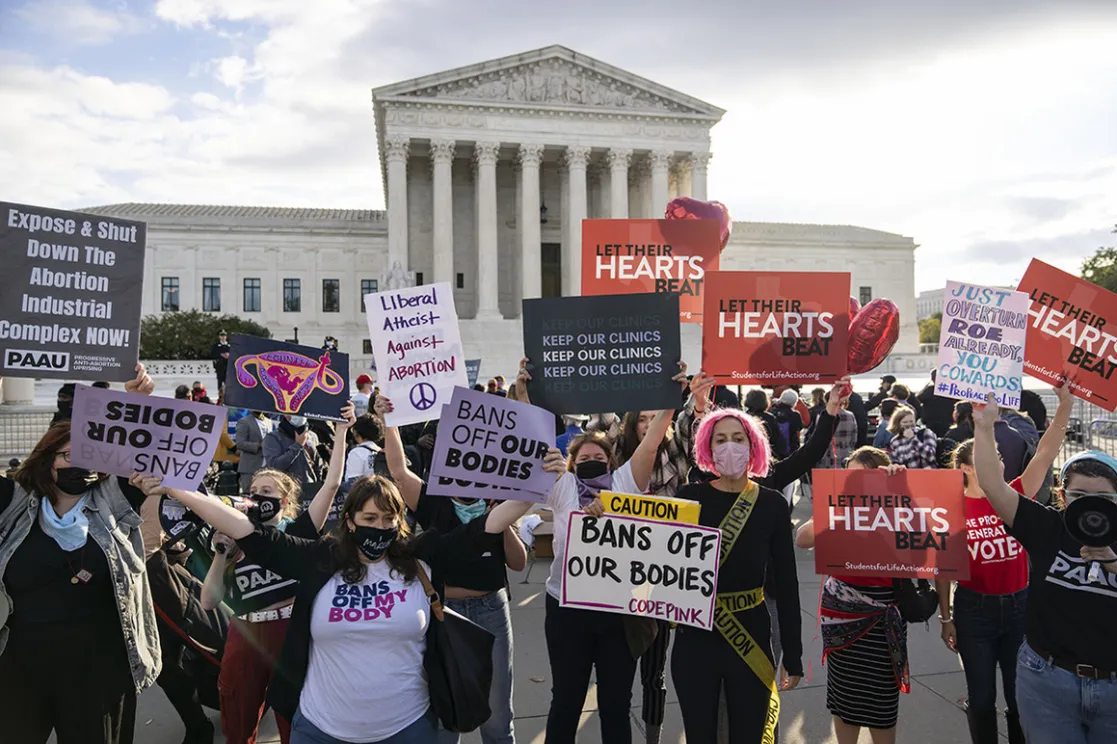
By Dr. Carmen Schaye, NWPC Vice President of Diversity
According to an initial draft majority opinion written by Justice Samuel Alito, the Supreme Court has voted to strike down Roe v. Wade, which guarantees federal constitutional protections of abortion rights and allow each state to restrict or ban abortions. By undoing Roe, it could potentially jeopardize other civil and privacy rights, such as the right to contraception, to engage in private consensual sexual activity, to marry someone of the same sex, and other civil rights laws. Historical abortion bans reflect the subjugation of women in American society. The immediate impact of the ruling would be to end federal constitutional protection of abortion rights, allowing each state whether to restrict or ban abortion.
The danger is that more states will follow Oklahoma and Florida as they are the latest U.S. states with Governors to sign laws limiting abortion. 30 U.S. states have introduced abortion bans so far in 2022. While rich women can travel and go to other states to have an abortion, poor women who can’t travel as easily may lose access, negatively impacting all women, and particularly hurting women of color. The Supreme Court expects to decide in favor of a Mississippi law that limits abortions to 15 weeks, asking the court to overturn its 1973 Roe v Wade decision that permits abortions until fetal viability, usually considered to be about 24 weeks of pregnancy. If the Alito draft is adopted, it would rule in favor of Mississippi. Oklahoma and Florida follow similar recent bans on abortion enacted in Arizona, Idaho, Kentucky, Wyoming, and Texas, among 26 states likely to quickly ban and even more severely restrict abortion access if Roe v Wade is overturned.
Intensifying restrictions in Oklahoma, the Oklahoma House banned abortion procedures after six weeks of pregnancy and is seeking to ban all abortions. Oklahoma became a haven for Texans seeking abortions, after the Texas Heartbeat Act. Dubbed the Oklahoma Heartbeat Act, the bill prohibits abortion to six weeks into pregnancy. Six weeks is too soon for some women to detect pregnancy.
Following the Texas ban, Oklahoma Governor made it a felony to perform an abortion. The Oklahoma law takes effect 90 days after the Legislature adjourns next month, making performing an abortion punishable by up to 10 years in prison, with an exception only in the case of a medical emergency to save the life of the mother. The law does not provide exception in cases of rape and incest, making it one of the most restrictive laws against abortion in the world. While it does not authorize criminal charges against a woman receiving an abortion, anyone convicted of performing an abortion could face up to 10 years in prison and a $100,000 fine. The legislation does not at present prohibit the use, sale, prescription, or administration of contraceptives.
Following this restrictive pattern with a culture war issue that galvanizes the conservative base for upcoming elections, Florida Governor Ron DeSantis banned most abortions after 15 weeks (usurping a previous law allowing up to 24 weeks). Modeled on the Mississippi abortion ban, the Florida law also does not provide exception in cases of rape and incest, or human trafficking. The passage of Oklahoma Senate Bills 612, 1503, House Bill 4327, and Florida House Bill 5, comes as the conservative U.S. Supreme Court scales back abortion rights that have been in place since Roe v. Wade.
State legislatures can pass trigger laws to enshrine abortion rights into state law if federal protections are removed. The burden is on the state legislatures to protect Roe v. Wade and privacy on the state level. Now more than ever we must elect pro-choice women who will protect a woman’s right to choose.
© Dr. Carmen Schaye







